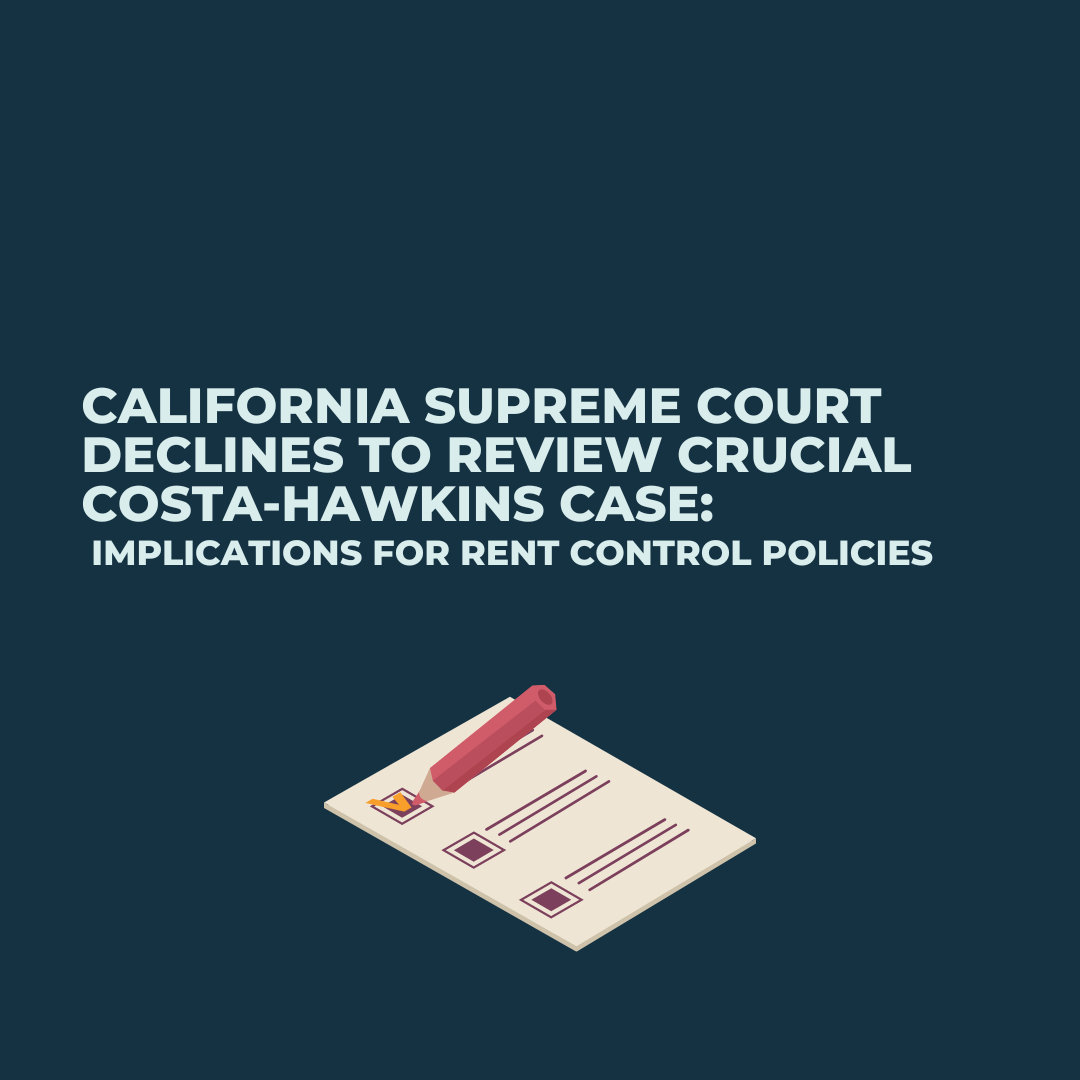California Supreme Court Declines to Review Crucial Costa-Hawkins Case: Implications for Rent Control Policies
In a significant development concerning California's rent control policies, the California Supreme Court has chosen not to review an essential case related to the Costa-Hawkins Rental Housing Act.

This decision has far-reaching implications for local rent control ordinances and their application to extensively renovated housing units. Let's delve into the details of the case, NCR Properties v. City of Berkeley, and its potential consequences for the state's housing crisis.
The Case: NCR Properties v. City of Berkeley
At the center of the case lies a dispute over Berkeley's implementation of its local rent control ordinance for housing units that underwent substantial renovation and were granted new certificates of occupancy. The property owner argued that the Costa-Hawkins Act, which exempts properties with certificates of occupancy issued after February 1, 1995, should have prevented the city from applying rent control to the rehabilitated units. However, both the trial court and court of appeal ruled in favor of the city, maintaining that Costa-Hawkins' exemption only applied to newly constructed units, not those that were extensively renovated.
CAA's Involvement and Concerns
The California Apartment Association (CAA) submitted a "friend of the court" letter urging the California Supreme Court to review the case. CAA emphasized the significant public policy issue at stake, arguing that the lower court's ruling sets a precedent that could exacerbate the state's housing crisis by discouraging investment in aging housing stock. Preserving and maintaining existing housing is crucial to ensure an adequate supply of homes for all Californians.
Implications for Local Government Power
Whitney Prout, CAA's policy and compliance counsel, expressed disappointment with the Supreme Court's decision, highlighting concerns about the discretion granted to local governments to determine when Costa-Hawkins applies. The law was originally intended to limit local government power, but the court's rulings seemingly provide more leeway to local authorities, potentially affecting property owners' rights and investment decisions.
Future Implications
With the California Supreme Court's refusal to review the case, the Court of Appeal's unfavorable decision will stand as law, unless a different case addressing the same issue reaches the Supreme Court in the future. This outcome emphasizes the need for continued attention to the interpretation and application of Costa-Hawkins, as well as the potential consequences for rent control policies in California.
Conclusion:
The California Supreme Court's decision not to review the NCR Properties v. City of Berkeley case has left a significant impact on rent control policies in the state. The ruling that exempts extensively renovated units from Costa-Hawkins' protection could potentially discourage investment in aging housing, aggravating the existing housing crisis. As this case sets a precedent for future disputes, it remains crucial to monitor the implications and explore alternative avenues to address the complex issues surrounding rent control and housing in California.








